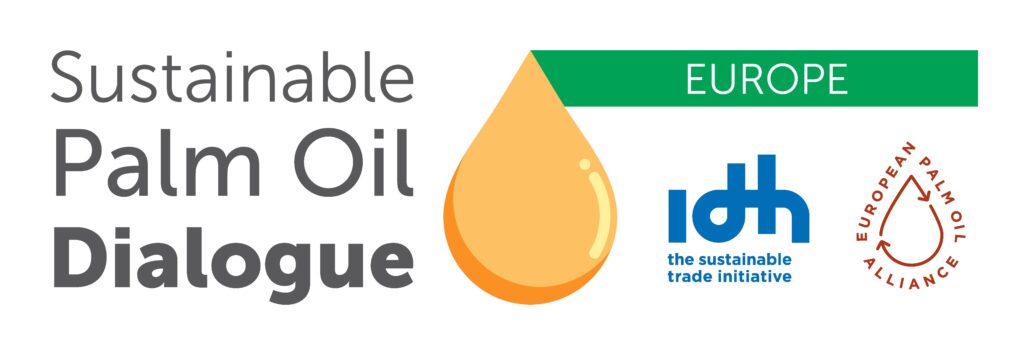
The third ‘Sustainable Palm Oil Dialogue: European Action for Global Impact’ focused on how actions in Europe can help accelerate global impact in palm oil producing countries and throughout the palm oil supply chain. The Dialogue was co-organized by IDH, The Sustainable Trade Initiative and the European Palm Oil Alliance (EPOA) and was sponsored by the RSPO and The CGF Forest Positive Coalition of Action.
The presentations as well as recordings of the plenary sessions are available at the SPOD2021 event website. You may click the ‘watch on demand’ button to view the recordings or click on the ‘download materials’ button for the presentations.
On the first day, we were pleased to see the numbers of sustainable palm oil in Europe is remaining high, but also noticed the difficulty of closing the gap and reach 100%. As the EPOA-IDH infographic shows, the CSPO uptake was 90% in 2020. Additionally, the infographic illustrates that private sector actors are taking steps beyond CSPO purchasing, such as improving traceability and NDPE policies. All agreed on the need for more public support and communication on the importance of sustainable palm oil. Furthermore, the interest and support for the new regulation and government action and how European action can create global impact was high. The Importance of creating smallholder market access as well as the need to collaborate with producing countries was emphasized: as vividly explained by Mrs Schomaker, Director for Global Sustainable Development of the European Commission: ‘it takes two to tango’.
On the second day on driving social impact in the palm oil supply chain, the level of agreement between trade unions, small holder farmer representatives and consumer goods companies was striking. On everything from the need for greater collective bargaining to the value of landscape approaches. It is clear that we need leadership and create better understanding of the dilemmas in order to avoid companies shying away from the hotspots. Collaborative action is needed to help drive positive social impact in the palm oil supply chain.
On the third day the focus was on accelerating forest positive action in the palm oil sector. While declining trends of deforestation for palm oil are encouraging, we discussed the remaining challenges and the role of companies, governments and NGO’s in making make the palm oil sector truly forest positive. Solutions ranged from maintaining current policies to acquiring financial support for smaller farmers producing sustainable palm oil. The work done in jurisdictional approaches bringing together all relevant stakeholders including government at subnational level proves instrumental. Scaling up landscape approaches, with open and constructive collaboration on the ground involving all key stakeholders including market partners is key to forest positive and also livelihood positive change. Involvement of global international players delivering on commitments of the CGF palm oil roadmap will be crucial to accelerate forest positive action.
Key takeaways (amongst other): the need to close the gap in Europe, more action on the ground, and advocate for and raise consumer awareness of the importance of sustainable palm oil!